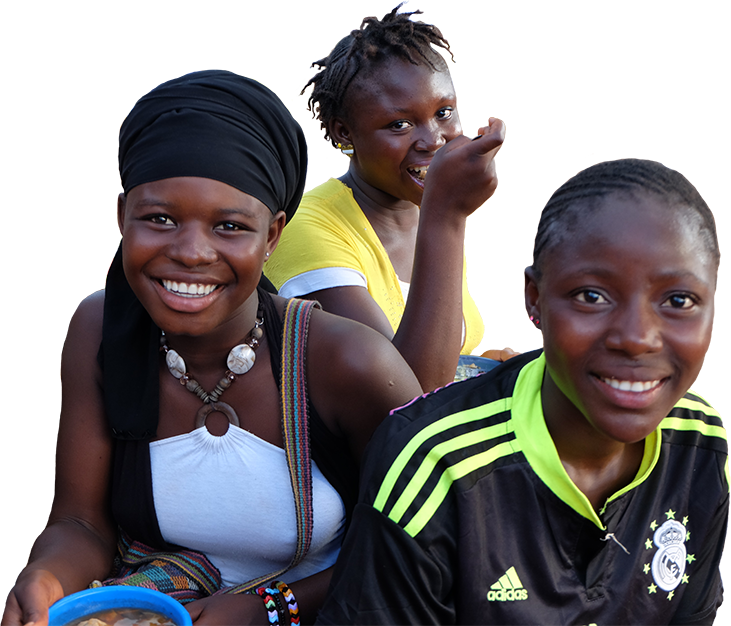Formative research helps us understand the challenges and opportunities that adolescents face, as well as barriers and enablers to behavior change. Routine monitoring is needed to assess progress toward program goals and national targets. Implementation research and evaluations are needed to identify effective approaches. The Adolescent Nutrition Resource Bank includes a variety of protocols and tools for monitoring, evaluating, and researching adolescent nutrition. If you have relevant monitoring, evaluation, or research resources, please send them to info@advancingnutrition.org.
We found 128 resource(s)
Formative Research to Inform Adolescent Programming in Kenya: Engagement for Health, Nutrition, and Sustainable Development
Technical Report published by WFP in
This formative qualitative research study, conducted in Kenya, focused on the perspectives, experiences, and suggestions of adolescent girls and their communities related to adolescent health and nutrition. The report includes recommendations related to strengthening the visibility of adolescents, influencing adolescent nutrition, engaging…
Formative Research to Inform Adolescent Programming in Guatemala: Engagement for Health, Nutrition, and Sustainable Development
Technical Report published by WFP in
This formative qualitative research study, conducted in Guatemala, focused on the perspectives, experiences, and suggestions of adolescent girls and their communities related to adolescent health and nutrition. The report includes recommendations related to strengthening the visibility of adolescents, influencing adolescent nutrition, engaging…
Formative Research to Inform Adolescent Programming in Uganda: Engagement for Health, Nutrition, and Sustainable Development
Technical Report published by WFP in
This formative qualitative research study, conducted in Uganda, focused on the perspectives, experiences, and suggestions of adolescent girls and their communities related to adolescent health and nutrition. The report includes recommendations related to strengthening the visibility of adolescents, influencing adolescent nutrition, engaging…
Nepal Multisector Nutrition Plan II: 2018-2022
Policy published by National Planning Commission, Nepal in
Nepal's Multi-sector Nutrition Plan II for 2018-2022 builds on the achievements of Multi-sector Nutrition Plan I (2013-2017) to improve maternal, adolescent and child nutrition by scaling up nutrition-specific and nutrition-sensitive interventions and creating an enabling environment for nutrition. This document describes more recent…
Malawi National Multi-Sector Nutrition Policy 2018-2022
Policy published by Department of Nutrition, HIV/AIDS, Government of Malawi in
The Malawi National Multi-Sector Nutrition Policy for 2018–2022 aims to ensure that evidence-based, high-impact nutrition interventions are developed and implemented at scale. The policy addresses such issues as preventing undernutrition and nutrition education, social mobilization, and positive behavior change.
Review of Evidence on the Nutrition Status of Adolescent Girls and Boys in Pakistan
Technical Report published by Global Alliance for Improved Nutrition (GAIN) in
This report provides a detailed review of evidence on the nutritional status of adolescent boys and girls and the primary determinants of adolescent malnutrition in Pakistan. The authors use this information to help identify and prioritize critical data gaps and shape recommendations for future policies and programs.
Formative Research on Adolescent Health and Nutrition in Udaypur District of Nepal: Report
Technical Report published by SABAL, USAID in
This formative research was designed to learn about the experiences and preferences of girls ages 10 to 19 in Nepal, specifically with regard to their information needs, preferences for program format and content, barriers and enablers to their participation in health programs, and health care seeking behaviors.
Suaahara II Annual Survey: Adolescent Panel Year 2
Assessment Tool published by in
This document is the data collection tool used in Year 2 of the Suaahara project, which focused on expanding health and nutrition services for adolescents in Nepal. The tool addresses respondents' health-related background, integrated nutrition exposure, dietary recall, WASH, social participation, freedom of movement, self-efficacy, social…



